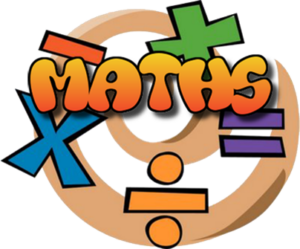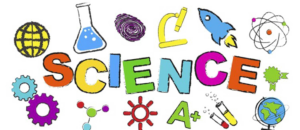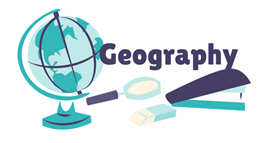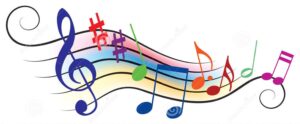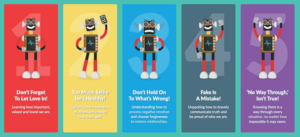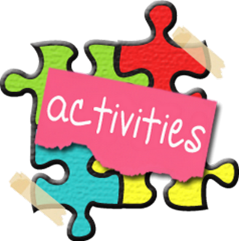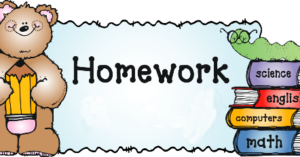Curriculum
“Let your light shine.” Matthew 5:16
Curriculum Vision
At Broadbottom Church of England (VC) Primary School we believe that learning should be a rewarding and enjoyable experience for everyone. This policy is rooted in our school values and church ethos (Matthew 5:16) “let your light shine”, where we believe that all children have potential which we aim to unlock by providing exciting learning experiences, challenging and inspiring children to succeed, we are active partners in their learning and enabling them to ‘shine’. The learning environment we provide promotes love and care where resilience, esteem, confidence, respect and positive relationships are nurtured.
Teaching and learning March 2021
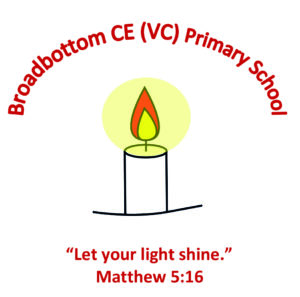
Broadbottom Curriculum Statement
The curriculum at Broadbottom CE (VC) Primary School consists of the National
Curriculum core and foundation subjects plus RE, RSE and PSHCE. These are
taught through a sequential and inspiring curriculum to engage the pupils and
to help knowledge stick.
Governors ensure that through subsidised trips, residentials and visitors, we
offer an enriched curriculum for all. This, and a strong pastoral team ensures
that personal development is of the highest priority for both pupils and their
families. Sports and other extra-curricular activities are provided throughout
the year.
EARLY YEARS FOUNDATION STAGE
Pupils begin their learning in the EYFS with a team of experienced staff. They
benefit from well-resourced indoor and outdoor areas. Pupils learn by playing
and exploring, being active, and through creative and critical thinking both
indoors and outdoors. All pupils follow the EYFS curriculum at a stage
appropriate for their age and development.
NATIONAL CURRICULUM KEY STAGE 1 AND 2
The current National Curriculum was published in September 2014. This guides
our teaching in both Key Stage 1 and 2.
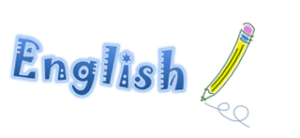
ENGLISH
English skills are taught in daily English lessons at both Key Stages, with
additional sessions for grammar, phonics and guided reading. The focus in
English is on the teaching of reading and writing with opportunities for pupils
to listen and speak in many different situations across the curriculum. To make
writing purposeful and interesting and develop and enhance opportunities to
write and learn in different areas of the curriculum.
The enjoyment of books and a love of reading are fostered from the early
stages of a pupil’s education, by providing daily access to a wide range of
books. Each classroom has an individual library, and all pupils have access to a
well-stocked communal library. This establishes a pleasure in reading and
develops skills so that reading can progress.
We begin the teaching of phonics at the beginning of the Foundation stage.
This gives the pupils confidence to attempt writing of their own and as they
progress through the school these early strategies help them develop into
fluent and confident readers and writers.
In EYFS, reading is matched to phonically decodable books. Using the Read,
Write, Ink validated scheme, pupils have a book that goes home for pleasure,
and a different book to read in school. In Key Stage 1 and 2 the pupils use a
range of books that are banded on the PM benchmarking scheme.
In class, reading is taught through individually in EYFS and Key Stage 1 and
progresses to a guided group approach in Key Stage 2. During these sessions a
group of pupils share a book together and are guided by the teacher to
improve their decoding and comprehension skills. In addition, guided
comprehension sessions take place daily where pupils discuss vocabulary,
inference, prediction, explanation, retrieval and sequencing. This VIPERS
approach enhances the pupil’s ability to answer the range of comprehension
questions they will meet in statutory assessment.
Drama and role-play allow the pupils to explore their own feelings, develop
speaking and listening skills and learn about the world around them.
In all key stages, pupils study a wide range of fiction and non-fiction texts, they
use different genres for writing and are taught to draft and re-draft before
producing their final piece of work. Pupils are taught to have high expectations
in learning correct spelling, grammar, punctuation and sentence formation.
MATHS
All pupils are encouraged and helped to develop a positive attitude and growth
mind set to mathematics from their earliest days in school.
Pupils are taught to value the importance of mental maths in their
mathematical development. Knowledge, understanding and skills to develop
numeracy are taught in the daily maths lesson and a wide range of experiences
including practical, games, investigations and problem-solving activities are
used.
Emphasis is placed on revisiting key skills with a daily session throughout the
whole school and a maths passport reward scheme incentivises pupils to
achieve. Maths is used in a wide range of contexts to help pupils appreciate
the purpose and relevance of mathematics in the real world.
SCIENCE
Our Science curriculum is implemented through five strands. Pupils are taught
to work scientifically using:
• Observation over time
• Classifying and grouping
• Pattern seeking
• Research
• Comparative testing
Science teaching helps pupils to develop enquiring minds and equips them with
key skills, so that they are increasingly able to research answers to their own
questions. Pupils are taught to recognize the strands as they appear in lesson
objectives.
COMPUTING
Computing prepares pupils to participate in a
rapidly changing world in which technology plays a growing part.
Pupils throughout the school use computing to support their learning across the
curriculum, through computer science, information technology and digital literacy.
HISTORY
The History curriculum offers a carefully considered sequential plan that
teaches pupils about the past and promotes sticky knowledge.
The pupils use historical artefacts and first-hand experiences e.g., visits, as well
as information books to find out about famous people, events and periods in
history, beginning with their own past and family.
This work helps pupils to develop many important skills including
understanding different points of view, interpreting information from more
than one source, evaluating historical information and the ability to learn from
past situations.
GEOGRAPHY
The Geography curriculum is designed into a themed approach across each
year group in a vertical plan. This enables pupils to recall previous facts, learn
new facts and make connections with future facts.
The curriculum stimulates and provokes pupils to ask and answer questions
about the natural and human world, using different scales of enquiry to help
pupils do this.
It develops knowledge of places and environments throughout the world, an
understanding of maps, atlases and a range of investigative and problem
solving skills, both inside and outside the classroom.
DESIGN AND TECHNOLOGY
Design and technology is an inspiring, practical subject. The curriculum teaches
our pupils to be creative by using their imagination, to design and make
products that solve real and relevant problems.
The subject calls on skills in mathematics, science, engineering, computing and
art.
High-quality design and technology education makes an essential contribution
to the creativity, culture, wealth and well-being of the nation.
MUSIC
The Music curriculum is delivered through Charanga. This is a scheme that delivers
the requirements of the national curriculum and the new music expectations.
Learning for pupils is based on:
• Listening and Appraising
• Musical Activities — creating and exploring
• Singing and Performing
In KS1and lower KS2 pupils learn percussion instruments, glockenspiel, and
recorder.
In KS2 pupils play glockenspiel and ukulele, with each pupil having their own
instrument.
Private tuition lessons are welcomed during the school day and are provided by
Tameside music service.
MODERN FOREIGN LANGUAGES
German is taught weekly in KS2 classes and is used in some of our everyday
routines.
The pupils are given opportunities to develop skills in reading, writing, speaking
and listening. We also learn about Germany and German culture.
ART
Art is an important subject at Broadbottom we want our pupils to value art.
We provide access to the subject early on, with Art lessons beginning in EYFS.
We have our own outdoor gallery where pupils, staff and members of the
community, including local artists, exhibit their works all year round.
Our curriculum is planned to give time and space for creativity
and covers a range of artists, styles, genres, cultures, websites, books, and
galleries.
The design of lessons builds on prior learning and equips pupils with the
knowledge and skills to experiment, invent and create their own works of art,
craft and design.
RELIGIOUS EDUCATION
The curriculum for religious education follows the Manchester Agreed Syllabus in
conjunction with Chester Diocese recommended syllabus, Understanding Christianity.
All state schools, must teach religious education to pupils at every key stage
The aim is to deliver a curriculum that:
• promotes the spiritual, moral, cultural, mental, and physical
development of pupils and of society
• prepares pupils at the school for the opportunities, responsibilities,
and experiences of later life.
The syllabus provokes challenging questions about human life, beliefs,
communities and ideas. Pupils learn from religions and world views about
different ways of life in local, national and global contexts.
They discover, explore and consider many different answers to questions about
human identity, meaning and value.
They learn to weigh up for themselves the value of wisdom from different
communities, to disagree respectfully, to be reasonable in their responses to
religions and world views and to respond by expressing insights into their own
and others’ lives.
They think rigorously, creatively, imaginatively, and respectfully about their
ideas in relation to religions and world views.
.
PHYSICAL EDUCATION
The PE programme at Broadbottom is delivered by Active Tameside Sports
qualified coaches who have had a successful relationship with us for over 16
years. Active Tameside provides high quality physical education curriculum,
inspiring all pupils to succeed and excel in competitive sport and other
physically demanding activities.
This provides opportunities for pupils to become physically confident in a way
which supports their health and fitness.
Opportunities to compete in sport and other activities build character and help
to embed values such as fairness and respect.
The programme fully integrates the national curriculum for physical education
aims, to ensure that all pupils:
• Develop competence to excel in a broad range of physical
activities.
• Are physically active for sustained periods of time.
• Engage in competitive sports and activities.
• Lead healthy, active lives.
• Understand the purpose of good nutrition values
PSHCE/P4C
Our PSHCE curriculum is delivered from a scheme called Church Heartsmart.
This is a creative approach used to build character, emotional health, and
resilience in children.
We equip our pupils with skills to improve their mental health, relationships
and academic achievement. Heartsmart educates the heart alongside educating
the brain and at Broadbottom we want to ensure that we enable all our pupils
to ‘Let your light shine’ Matthew 5:16
The HeartSmart High Five
P4C PHILOSOPHY FOR SCHOOLS
All staff are fully trained to deliver Philosophy for Children (P4C). This is an
approach to teaching and learning, in which pupils take part in philosophical
enquiry. It enhances thinking and communications skills, boosts confidence and
self-esteem and improves behaviour and well-being. Pupils discuss open ended
questions such as:
• Is it ever OK to lie?
• What makes you you?
• Do we have to respect everyone?
• Can good people do bad things?
• Do we all have the same rights?
Overtime, we witness our pupils develop their skills to become more
philosophical and imaginative with their questions. We believe through this
approach that pupil learn to listen carefully to each other, to explore
differences of opinion respectfully, and to value the ideas of others.
As such pupils at Broadbottom are tolerant, positive and considerate and
behaviour throughout school is consistently excellent.
EDUCATIONAL VISITS AND ACTIVITIES
We firmly believe that pupils are helped to learn effectively where they have
access to a wide range of first-hand experiences. Many of these experiences
can be gained from visiting the local and wider environment or by inviting
people with unique skills and talents into the school to work with the pupils.
We have many links with skilled members of our local community who offer
their services to enrich the curriculum through their area of expertise.
HOMEWORK
The home/school partnership begins when your child starts school. Homework
at this stage starts with regular book sharing and homework-based tasks which
may be simple phonic and number activities. As pupils become early readers
they are expected to read on a daily basis at home.
Homework tasks are provided, and a timetable is used to guide parents as to
how much time should be dedicated to home learning each week. Homework
is provided via Google Classrooms each Monday and is marked by the Class
Teacher and returned via the same platform.
Homework provides a very important opportunity for young pupils to talk
about what they are learning to an interested adult, and to practise key skills
